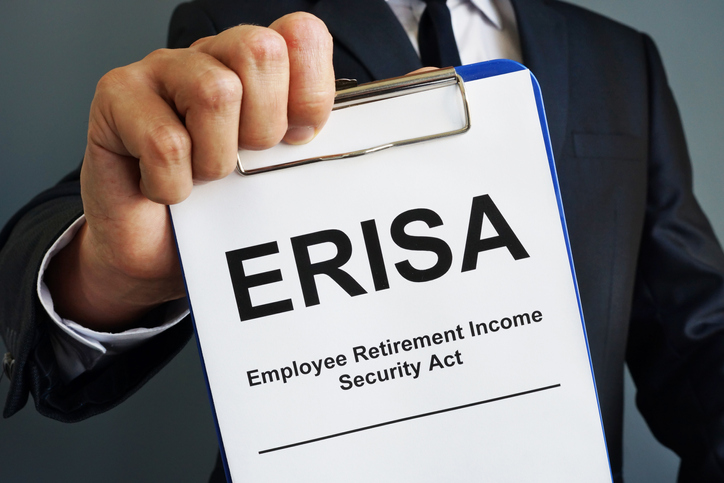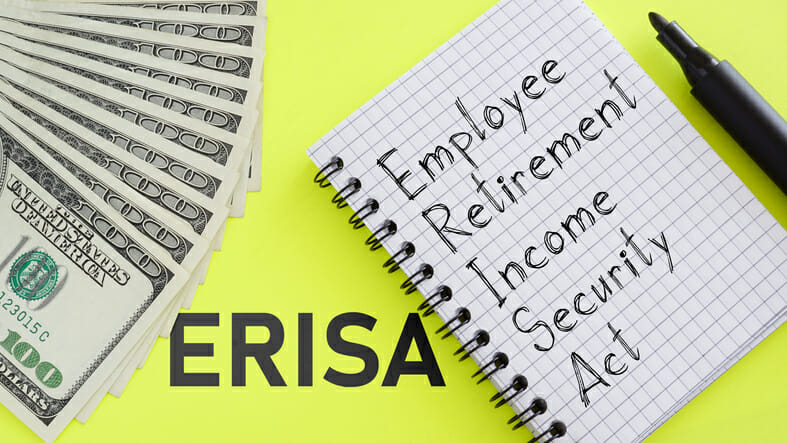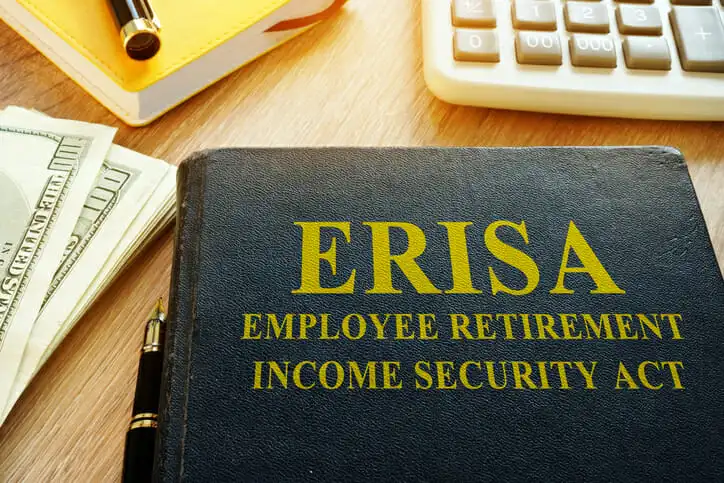The Employee Retirement Income Security Act (ERISA), is a federal law that protects members of employer-sponsored retirement and health plans. Most American workers belong to retirement plans that are covered by ERISA. The list of covered plans includes the most popular type, the 401(k), as well as 403(b), SEP IRA and others sponsored by private businesses. Government plans, including Social Security, and church-sponsored plans, among others, are not covered by ERISA protections. We’ll go over the details that you need to know.
To get help with planning for your own retirement, consider talking to a financial advisor.
ERISA Basics
The federal government enacted ERISA in 1974 to protect workers in employer-sponsored retirement and health plans. The Studebaker automaker’s bankruptcy 10 years earlier helped trigger the law’s passage. The struggling company had borrowed from its employees’ pension plan to keep afloat. After its eventual collapse, thousands of workers were left with no jobs or the pension benefits they had been promised.
ERISA aimed to stop this sort of mistreatment. Among other things, it requires plans to provide members with information about the plan’s funding and features, sets standards for vesting and other matters and holds plan managers to fiduciary standards. It also guarantees pension benefits will be paid through the Pension Benefit Guarantee Corporation.
When ERISA passed, most American workers were covered by pensions that guaranteed a certain level of benefits, with the employer shouldering the obligation to make good on the guarantees. Since then, these defined-benefit plans have been largely replaced by defined-contribution plans, such as 401(k)s.
Although 401(k)s, the most common type of employer-sponsored retirement plan, didn’t exist in 1974, ERISA was written broadly enough that it covers them and most other varieties of defined-contribution plans as well as the shrinking number of defined-benefit pension plans. The law has been refined and expanded several times. For instance, in 1984 the Retirement Equity Act protected spouses’ rights to pension benefits.
Retirement Plans Covered by ERISA

ERISA oversees most American workers’ retirement plans. This includes both defined-benefit and define-contribution retirement plans. Here are specifics of the retirement plans it covers:
- Corporate pensions. These employer-sponsored plans guarantee a certain level of benefit to retired employees.
- 401(k) plans. The most popular type of retirement plan, a 401(k) is a defined-contribution plan that offers tax advantages and, often, matching contributions from employers.
- 403(b) plans. These defined-contribution plans are similar to 401(k) plans but are available to public employees and workers at universities, hospitals and non-governmental organizations.
- SEPs. The Simplified Employee Pension, or SEP, gives employees tax-advantaged ways to contribute to their own retirements.
- ESOPs. Employee Stock Ownership Plans (ESOPs) are defined-contribution plans that invest their assets mostly in shares representing ownership of the employing company.
- Profit-sharing plans. These retirement plans resemble 401(k) plans except that only the employer contributes.
- Cash balance plans. These plans entitle covered employees reaching retirement to take benefits as a lump sum or in the form of an annuity.
Plans ERISA Does Not Cover
Although ERISA covers most employees’ retirement plans, many types are exempt from the law’s provisions. They include the following:
- Social Security. The biggest retirement plan of all, Social Security, has its own set of laws and regulations.
- Government-sponsored plans. Retirement plans sponsored by states, cities and other governmental entities, including the Federal Employees Retirement System, are exempt from ERISA.
- Church plans. When religious organizations offer retirement plans to employees, they are not required to conform to ERISA.
- IRAs. Individual Retirement Accounts ( are set up, funded and overseen by individuals rather than employers or other organizations and don’t have to follow ERISA’s rules. This includes self-employed people’s IRAs.
- Rollover IRAs. If an employee in a 401(k) or other ERISA-covered employer-sponsored plan rolls over funds from the plan into an IRA, the rollover IRA is not covered by ERISA.
How to Tell if ERISA Covers Your Plan
Retirement plans covered by ERISA must file a Form 5500 annual report with the Department of Labor (DOL). The department’s EFAST website allows anyone to search these filings using the name of the plan. The reports provide information including the number of participants, benefit features such as insurance and details of specific investments owned by the plan and their dollar value.
Bottom Line 
ERISA’s protections apply to most employees’ retirement plans, including 401(k) and pension plans. These include both defined-benefit and defined-contribution plans. Plans not covered by ERISA include government- and church-sponsored plans, IRAs and Social Security. ERISA rules aim to protect employees against loss due to mistreatment by retirement plan sponsors. The law also protects against loss of pension benefits through the Pension Benefit Guarantee Corporation.
Tips on Retirement
- Consider working with a financial advisor to develop, implement and fine-tune a financial plan for your retirement goals. SmartAsset’s free tool matches you with up to three vetted financial advisors in your area, and you can interview your advisor matches at no cost to decide which one is right for you. If you’re ready to find an advisor who can help you achieve your financial goals, get started now.
- Are you saving enough for retirement? SmartAsset’s free retirement calculator can help you determine exactly how much you need to save to retire.
Photo credit: ©iStock.com/designer491, ©iStock.com/designer491, ©iStock.com/Andrii Dodonov
